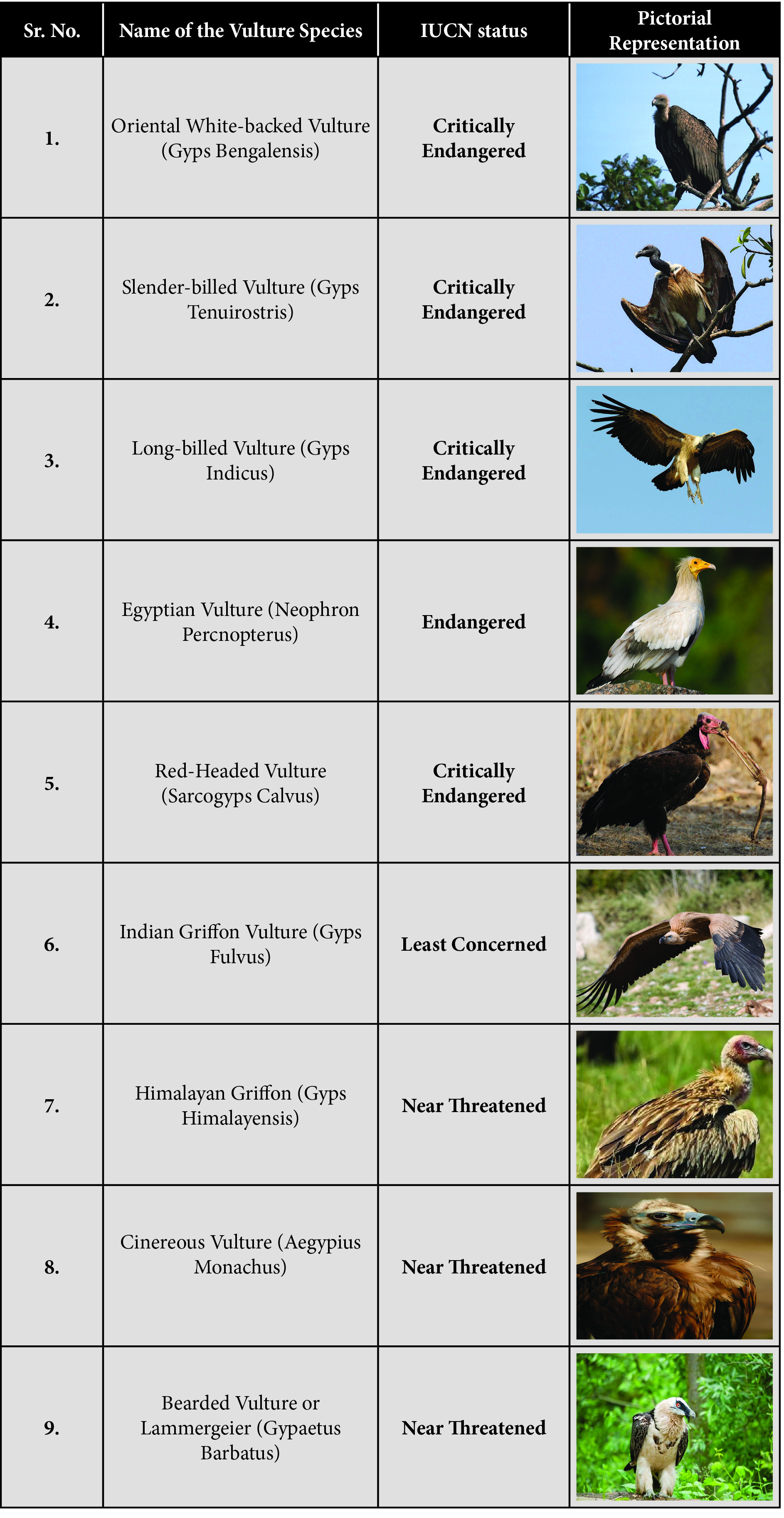Vulture Culture | 16 Sep 2019
India is home to nine species of vultures, but most of them face the danger of extinction.
The nine species of vultures & their International Union for Conservation of Nature (IUCN) status are:
Conservation Efforts
- To study the cause of deaths of vultures in India, a Vulture Care Centre (VCC) was set up at Pinjore, Haryana in 2001.
- Later in 2004, the VCC was upgraded to being the first Vulture Conservation and Breeding Centres (VCBC) in India.
- At present, there are nine Vulture Conservation and Breeding Centres (VCBC) in India, of which three are directly administered by the Bombay Natural History Society (BNHS).
- The main objective of the VCBCs was to look after the vultures and breed them in captivity and also release them into the wild.
- India’s conservation efforts are focussed on the three species of vultures which are Critically Endangered according to the International Union for Conservation of Nature (IUCN) namely,
- White-backed Vulture,
- Slender-billed Vulture, and
- Long-billed Vulture.
Reasons for Death of Vultures
- The major reason behind the vulture population getting nearly wiped out was the drug Diclofenac. It was found in the carcass of cattle on which the vultures feed.
- The drug was commonly administered to cattle to treat inflammation.
- Its veterinary use was banned in 2008 by the Government of India.
- Bioaccumulation (the gradual accumulation of substances, such as pesticides, or other chemicals in an organism) of Diclofenac caused kidney failure in Vultures, leading to death.
- Diclofenac is dangerously fatal for Vultures. Even 1% of it in carcass would kill the Vulture in a short time after it feeds such carcass.
- The poisoned carcasses were dumped to kill some local stray animals. But when vultures fed on them, it became one of the vital reasons leading to their death.
- It is imperative to manage our carcass dumps and make sure that poisoned carcasses are not dumped for the vultures to feed on.
- The forest department cremates the animal carcasses instead of burying them, to keep the poachers away. But this practice is denying food to vultures leading to their death out of starvation.
Way Forward
- The forest department needs to give emphasis on creating awareness and on creating safe zones for vultures in places where there is an existing vulture population.
- So far nine states have undertaken programmes to create safe habitats for vultures.
- Vultures are slow-breeding birds, there is a need for immediate intervention to save them from extinction.

